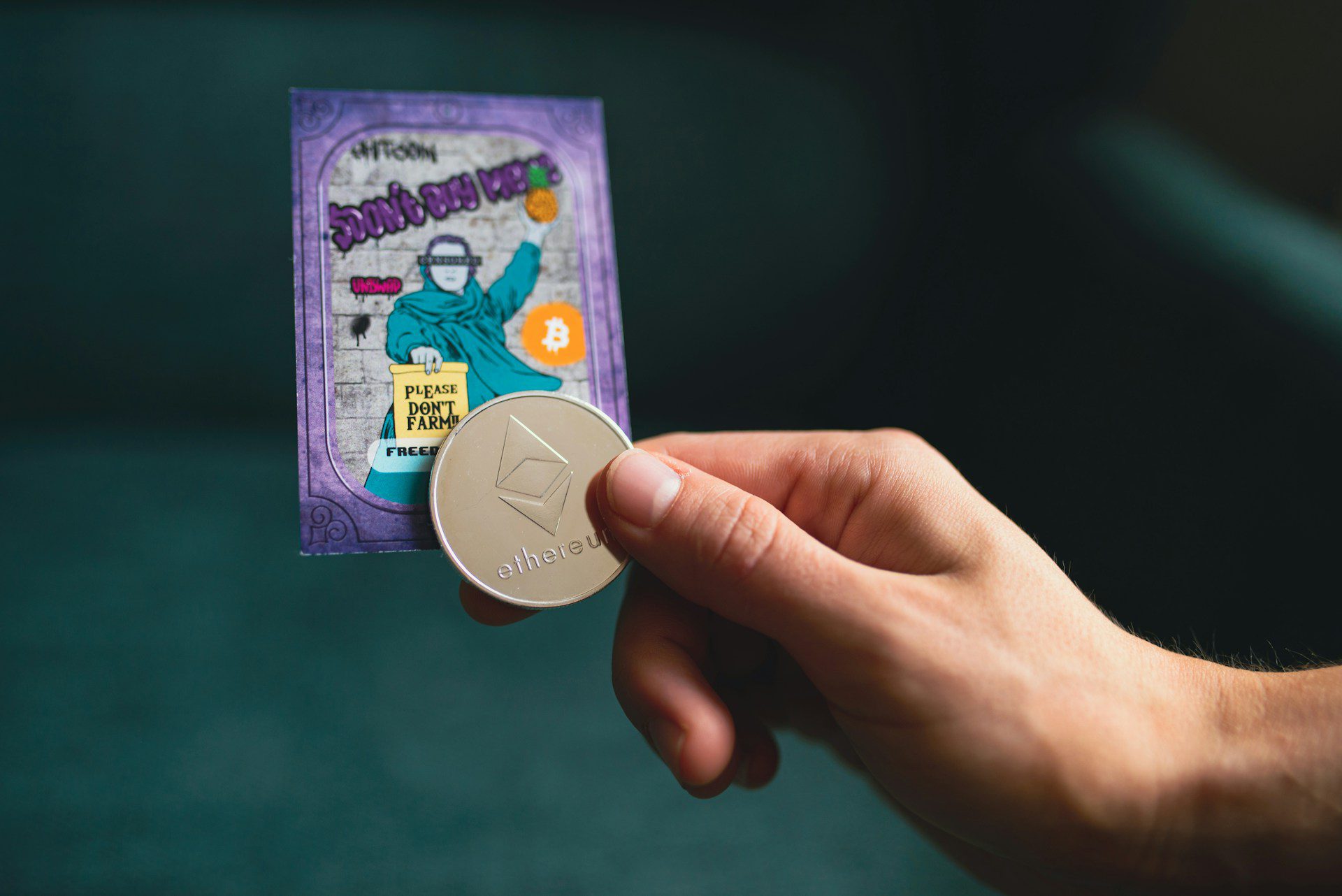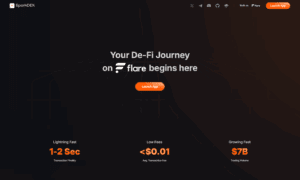Navigating the world of non-fungible tokens (NFTs) can be a complex journey, particularly if you’re a professional trader looking for platforms that offer a robust set of features to facilitate buying, selling, and trading digital assets. The best NFT marketplaces for pro traders are defined not just by their popularity, but by their liquidity, the diversity of assets available, and the advanced tools they provide to facilitate trading at a high level.
As a pro trader, your needs are unique; you require secure, reliable marketplaces with low latency, high performance, and deep market integration. These platforms should offer a wide range of NFTs, from digital art and collectibles to virtual real estate and beyond, while also providing detailed analytics to inform your trading decisions. The landscape is competitive, and staying informed about the most capable and trustworthy NFT marketplaces is crucial to your success in this dynamic market.
When selecting an NFT marketplace, assessing factors such as transaction fees, blockchain compatibility, and the user interface is important. For instance, marketplaces like Nifty Gateway attract attention for hosting exclusive sales and could be suitable if you’re looking for rare, high-value NFTs. Meanwhile, comprehensive platforms like Blur NFT Marketplace, which operates on the Binance Smart Chain, cater to a wide array of media types and provide a seamless integration with one of the largest cryptocurrency exchanges in the world. Your choice will hinge on the specific advantages that align with your trading strategies and goals.
Overview of NFT Marketplaces
When venturing into the burgeoning world of digital assets, you’ll find non-fungible tokens (NFTs) at its forefront. These unique digital items, such as artwork, collectibles, or even tweets, are traded on specialized platforms known as NFT marketplaces. These platforms cater to a variety of user needs, from the novice enticed by simple user interfaces to professional traders seeking advanced features.
Most marketplaces provide fundamental services like buying, selling, and, in some cases, creating or ‘minting’ NFTs. Here’s a brief rundown of some prominent platforms you might consider:
- eToro: Known for its wide range of tradable cryptocurrencies, you can expect competitive fees ranging from 0.95% to 1.25%.
- Uphold: Offers a seamless trading experience and supports various digital assets.
- Blur: Since its launch in October 2022, it quickly gained market traction, now boasting a substantial market share and user base.
- Coinbase: Prides itself on safety and a diverse network, including Ethereum and Polygon.
- KuCoin: A sound choice if your interest lies in game NFTs, with a broad asset availability and support for multiple networks.
- OpenSea: Often recognized as a leading platform, it faces competition but remains a hub for a range of NFT types.
Each marketplace has its own set of rules, fees, and supported blockchains, such as Ethereum, Polygon, and others. Before you embark, review their features carefully to find the platform that aligns with your trading needs. Consider the trading volumes, number of users, and any specialized services they might offer to elevate your trading strategy.
Identifying Top NFT Marketplaces for Pro Traders
When you’re trading NFTs at a professional level, choosing the right marketplace is crucial for success. Here are specific factors to consider.
Volume and Liquidity Metrics
You should assess the trade volume and liquidity of a marketplace, which are indicators of its vibrancy and reliability. Marketplaces with high trade volumes, like OpenSea and Binance, likely offer better liquidity, making it easier for you to execute large trades quickly and at your expected prices.
Smart Contract Security Features
Audit the security features of the platform’s smart contracts. Marketplaces such as Bybit and Uphold dedicate resources to securing their trading environments. Ensure that the platform has a history of secure transactions and implements regular security audits to protect your assets.
Range of Tradable Assets
A broader range of tradable assets is advantageous. Look for platforms that support a wide array of NFTs across different categories. For instance, Axie Marketplace specializes in gaming NFTs, while eToro offers a considerable selection of 250+ cryptocurrencies, making it a one-stop-shop for diversified traders.
Advanced Trading Features
Pro traders require advanced functionalities to optimize their NFT trading strategies effectively. The following features are crucial for staying ahead in the fast-paced NFT market.
Real-Time Data Analytics
You benefit from real-time data analytics as they provide immediate insights into market trends and asset performance. This can include volume, price fluctuations, and historical data points. Platforms that excel in this area might offer customizable dashboards, and detailed asset breakdowns to inform your trading decisions accurately.
API Support for Automated Trading
With API support, you can connect your own trading bots and algorithms for automated trading. This allows for high-frequency trading and greater market responsiveness. Look for platforms that offer extensive API documentation and reliable endpoints for market data, trading operations, and account management.
Fractional Ownership Trading Options
Platforms that provide fractional ownership allow you to trade portions of high-value NFTs. This means you can invest in expensive assets with less capital and diversify your portfolio. Such marketplaces generally offer a system to buy and sell fractional shares in NFTs, making previously inaccessible assets available to you.
Community and Network Effects
Network effects and community engagement are fundamental to the success of NFT marketplaces, particularly for professional traders who thrive on real-time insights and collaboration.
Social Features and Community Building
You’ll find that robust NFT marketplaces have integrated social features to encourage community engagement. These platforms may allow you to:
- Follow favorite creators to stay updated on new NFT drops
- Participate in forums and chats to discuss strategies and trends
- Share collections for feedback and exposure
For instance, platforms like eToro support an expansive trading community where ideas and strategies are exchanged, enhancing the trading experience.
Collaborations and Exclusive Drops
Professional traders often seek marketplaces that offer exclusive collaborations with artists and brands for the following reasons:
- Better investment opportunities: Limited edition NFTs can be more valuable.
- Network-building: Collaborations attract a diverse set of collectors and traders.
An example is BloctoBay, which hosts Flow NFTs with exclusive collections from notable partners like NBA Top Shot and other unique collaborations.
Fee Structures and Royalties
In the competitive world of NFT trading, understanding fee structures and royalties is crucial to maximizing your profits as a pro trader.
Comparison of Transaction Fees
eToro
- Maker Fee: 0.95%
- Taker Fee: 1.25%
- Cryptocurrencies Available: 250+
Uphold
- Maker/Taker Fees: 1%
Transaction fees vary significantly between NFT marketplaces; some platforms charge a fixed percentage for makers (who provide liquidity) and takers (who remove liquidity), while others have a flat fee for both. It’s important you pay attention to these details to manage your trading costs effectively.
Royalty Support for Artists and Creators
Royalty Provision
- Supported by various marketplaces
- Percentage of secondary sales allocated to creators
Many NFT marketplaces implement royalty systems, ensuring that artists and creators receive a percentage of sales whenever their NFTs are sold on the secondary market. This arrangement not only benefits creators but also incentivizes them to remain within the ecosystem. Keep this in mind when choosing a platform, as it directly impacts the creators’ income.
Marketplace Interface and Usability
When choosing an NFT marketplace for professional trading, you should prioritize platforms that merge exceptional user experience design with proficient cross-platform compatibility.
User Experience Design
Your proficiency in trading highly depends on the interface provided by the marketplace. Intuitive navigation, ease of access to key trading actions, and real-time data presentation are non-negotiable features. Opt for marketplaces with a clean layout and customizable dashboards to monitor trends and manage your assets efficiently. Quick access to buying, selling, and bidding options must be seamlessly integrated.
Cross-Platform Compatibility
A marketplace that offers cross-platform trading opportunities expands your reach and potential for market analysis. Ensure that the platform is responsive across devices, including smartphones, tablets, and desktops. This compatibility means you’re never hampered by device limitations when executing trades. Also, look for integration with popular blockchain networks and wallets, ensuring that you can trade diverse NFTs without swapping platforms.
Security and Trustworthiness
When considering NFT marketplaces for professional trading, your top priorities should be security and trustworthiness. The reputation of a platform and its processes for verifying users and assets are crucial to ensuring a secure trading environment.
Reputation and Reviews
You should examine a marketplace’s reputation by looking at both industry reviews and community feedback. Marketplaces with a solid reputation typically have a history of reliable transactions and user satisfaction. For example, Coinbase, known for its safety, has established a 190+ countries presence, suggesting a widespread trust in its services. Regular audits and transparency reports can also be indicative of a platform’s commitment to security.
Verification Processes for Users and Assets
The verification process is essential in mitigating fraud and ensuring the authenticity of both users and NFTs. Platforms like eToro and Uphold require stringent KYC (Know Your Customer) procedures, which help in creating a secure environment for traders. Look for marketplaces that:
- Utilize two-factor authentication (2FA) for user accounts
- Implement smart contracts to verify asset authenticity
- Conduct asset background checks to prevent the sale of stolen or counterfeit NFTs
Regulatory Compliance
When considering the best NFT marketplaces for pro traders, recognizing the importance of regulatory compliance is essential. It provides a framework of trust and safety for users.
Adherence to International Regulations
You must understand that each NFT marketplace operates under specific international laws that vary by jurisdiction. Marketplaces need mechanisms to ensure they comply with securities law. For instance, if a marketplace is operating in the European Union, it needs to align with the GDPR for data protection.
KYC and Anti-Money Laundering Protocols
Efficient Know Your Customer (KYC) and Anti-Money Laundering (AML) protocols are crucial. These protocols protect against possible misuse of the platform for illegal activities. A thorough process may involve:
- Document verification: verifying identity with government-issued IDs.
- Risk assessment: evaluating transaction history to mitigate potential fraud.
- Reporting: maintaining records and reporting suspicious activities as per the governing body’s requirements.
Support and Educational Resources
Navigating NFT marketplaces as a professional trader requires a solid framework of support and educational resources. This ensures you can confidently execute trades and optimize your strategies.
Customer Support Services
Your trading experience is heavily influenced by the responsiveness and expertise of customer support. Top-tier NFT marketplaces offer 24/7 support through multiple channels such as live chat, email, and sometimes phone lines, ensuring you have access to assistance whenever needed. Prioritize marketplaces with a strong reputation for prompt and helpful support, especially those known for addressing complex trader inquiries quickly and effectively.
Guides and Tutorials for Professional Trading
To sharpen your trading skills, seek out platforms providing dedicated educational content. Look for:
- Advanced guides that dissect market trends and offer analysis techniques.
- Video tutorials that demonstrate professional trading strategies on the interface.
- Extensive FAQ sections and community forums where you can learn from fellow traders.
- Regular webinars and workshops held by experienced traders or marketplace experts.
Access to these resources can significantly enhance your trading proficiency on the NFT marketplaces.
Frequently Asked Questions
In this section, you’ll find targeted answers to common inquiries professional NFT traders have when selecting the best marketplaces for their trading needs.
What criteria define the best NFT marketplaces for experienced traders?
The best NFT marketplaces for you, as an experienced trader, often feature robust security measures, high liquidity, a wide range of assets, low transaction fees, and advanced trading tools. Additionally, user experience and customer support quality are essential factors to consider.
Which NFT marketplace offers the most advanced trading tools and features?
Blur has rapidly grown since its launch in October 2022, gaining a significant market share with advanced features favorable to experienced traders. Its interface and analytical tools cater to professionals looking for in-depth market analysis and advanced trading options.
How do the leading NFT marketplaces compare in terms of transaction fees for seasoned traders?
Transaction fees vary significantly across marketplaces. While some platforms offer competitive fee structures, others may have higher fees for the exclusivity and uniqueness of NFTs they host. You should assess the fee schedules of platforms like Coinbase and Nifty Gateway to determine which aligns with your trading strategy.
What platforms provide the most comprehensive analytics for NFT trading?
Marketplaces that cater to professional traders typically offer comprehensive analytics for NFT trading. Coinbase is renowned for its safety and its analytical tools that help you understand market trends and make informed decisions.
Can you recommend NFT marketplaces that support high-frequency trading strategies?
For high-frequency trading strategies, you’ll need a platform with fast transaction times and high liquidity. Marketplaces such as Blur and Coinbase could be your go-to options as they are designed to support rapid and numerous transactions, which are essential for high-frequency trading.
What are the best practices for security and due diligence on top-tier NFT marketplaces?
Your security and due diligence should include verifying the authenticity of the NFTs, checking the security protocols of the marketplace, and understanding the smart contract terms. Always use platforms with a solid reputation for security, and never compromise on the due diligence to ensure the safety of your trades.



































